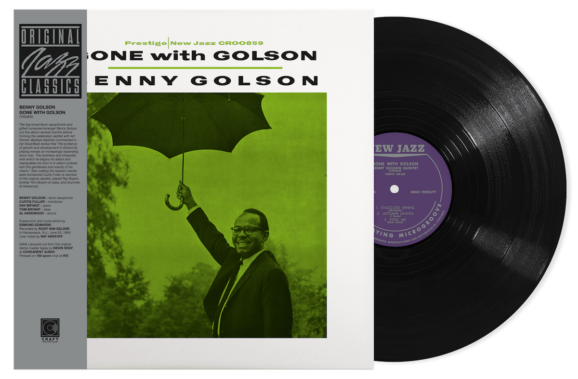Time Out Take Five is a column comprised of pithy takes on recent jazz releases, spotlighting titles deserving attention that might otherwise go unnoticed.
Noah Haidu: Standards Vol. III – With what is now a trifecta of albums comprised solely of standards, pianist Noah Haidu has significantly elevated his profile as a musician and bandleader within the contemporary jazz community. And the worthy digression from the ‘Great American Songbook’ concept via 2021’s Slowly: Song For Keith Jarrett fortified that ascent, in part because bassist Buster Williams and drummer Billy Hart participated (they are among seven accompanying musicians on this LP). Graceful and elegant in his own playing during, for instance, “Slipstream,” Haidu interweaves with his bandmates in such a way that he not only accentuates those virtues of his, but also maximizes those elements in the playing of the others. The comparably equitable display of attributes on tracks like “Alone Together” and “Teach Me Tonight” is likewise indicative of the overall balance Haidu and company maintain throughout Vol. III.
Dave Bass: Trio Nuevo Vol. 2 – If pianist/composer/bandleader Dave Bass is proving anything with his ‘Trio’ projects, it’s that a formula can produce positive results. And it hardly takes more than a few minutes from the sixty-plus of Trio Nuevo Vol. 2 to discern Bass and company–Tyler Miles on double bass and Steve Helfand on drums–are not simply going through the repetitive motions. The rollicking pairing of Bass and Wayne Shorter compositions “Legrand”/”Lester Left Town” leads inextricably to the relative repose of the original “Heart Above My Head;” it’s a sequence that effectively erects the dynamic range of the album as a whole. Yet another composition by this bandleader, “Melquiades,” reminds that while the cover art for such outings as this are as superficially similar as the music, there are as many subtle differences in the recordings themselves as in the colorful images.
Satoko Fujii/This Is It: Message – Peripatetic as she is prolific, pianist Satoko Fujii leads a number of different musical ensembles and boasts membership in just about as many. And that’s hardly the least of the Japanese pianist/composer’s pedigree as compositions of hers on Message, such as “Cryptogray” and “Orange Flicker,” lend themselves to vigorous interplay. None of the three in this ensemble, also including Natsuki Tamura on trumpet and Takashi Itani on drums and percussion, hold back from making instrumental statements, so it’s tribute to the overall chemistry of the group that no collisions occur. On the contrary, the twists and turns of these longest performances, “Falafel Feast” “and “Never Mind”), mirror the unpredictable structures of the material. Equally abandoned and empathetic, this threesome is continuously aware of each other as they play together, in the end creating music that is as disarming as it is thought-provoking.
Jon Irabagon/Plainspeak: Someone To Someone: Beginning these fifty-four plus minutes with languorous trills from Jon Irabagon’s sax and Russ Johnson’s trumpet, the acoustic quartet that is PlainsPeak effectively redefines (yet again) the versatility that’s been the hallmark of this bandleader’s career. While none of these six cuts extends into the double figures “At What Price Garlic,” the aforementioned two hornmen interact on almost a telephatic level and similarly preternatural mutual instincts earmark their connections with Clark Sommers on acoustic bass and Dana Hall on drums. Thus, it’s little surprise the performances of these half-dozen Irabagon originals reach full-flower in very short order: the inspiration the quartet displays on “Buggin’ The Bug” is as deceptively dense as the cover graphics, but comparably worth close perusal to savor the subtleties. A hidden seventh cut cements the elevated level of surprise that permeates the LP because before it’s over, it positively bristles with energy.
Gonzalo Rubalcaba/Chris Potter/Eric Harland/Larry Grenadier: First Meeting – While it’s at first difficult to know where to begin praising this double-CD set, the high-quality sound eventually reveals itself as an ideal place to start. Spread across the stereo spectrum, the depth and presence of recordings by Jamie Macomber, mixed by Akhiro Nishimura and Joao Gonzalez, then mastered by Mark Wilder become a metaphor for the sophistication of the musicianship. As on the near-seventeen minute opening track, Chick Corea’s “500 Miles High,” another sixteen minutes plus on drummer Eric Harland’s “Eminence” finds the quartet taking its time to state themes, then explore them with as much efficiency as passion. Solos like saxophonist Chris Potter’s on his original “Oba” likewise proceed without hesitation and are imbued with a quiet gusto that, like the set as a whole, becomes enrapturing in very short order and remains so for the duration.








